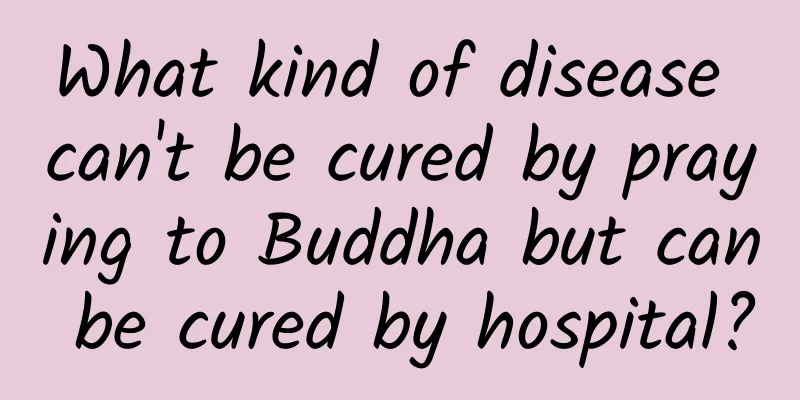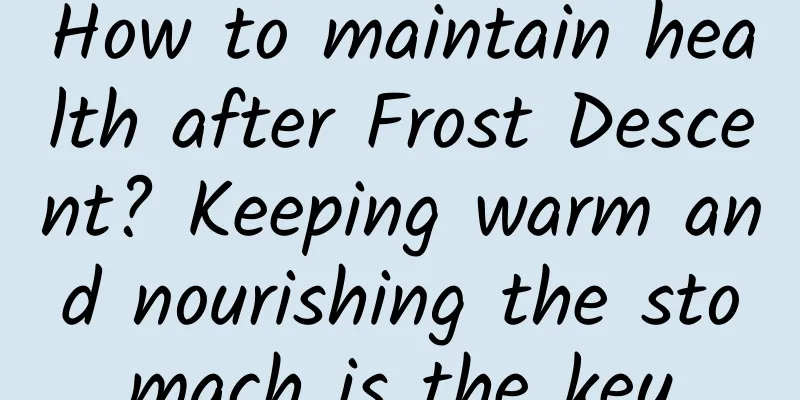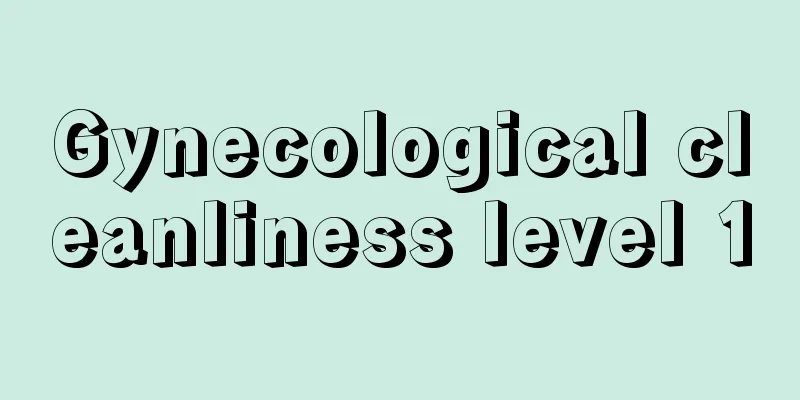What kind of disease can't be cured by praying to Buddha but can be cured by hospital?

|
Recently, a 45-year-old female patient came to the outpatient clinic. The patient has the habit of worshiping Buddha. A month ago, the patient developed symptoms of dizziness, blacking out, transient aphasia, and numbness of one side of the limbs. After the symptoms appeared, the patient did not go to see a doctor, but worshipped Buddha and chanted scriptures more devoutly. After each worship and chanting, the patient felt that the symptoms were relieved. Although the patient's family members advised the patient to go to the hospital for treatment, the patient herself felt that worshiping Buddha could cure the disease and was unwilling to go to the hospital for treatment. Half a month ago, when the patient was at home, the corner of her mouth suddenly became crooked, she vomited, and fell to the ground. Seeing this, the family members immediately called 120 emergency number. After being sent to the hospital, it was found that the patient had a cerebral infarction. Fortunately, the rescue was timely and the patient did not leave major sequelae. After the patient's cerebral infarction was stabilized, he came to Beijing for treatment with imaging data. Combined with the patient's data, after careful evaluation, it was confirmed that the patient had moyamoya disease. Since the patient had a recent cerebral infarction, it was not recommended that the patient undergo moyamoya disease surgery immediately. It was recommended that the patient come to the hospital for surgery in three months to treat moyamoya disease. Transient ischemic attack (TIA), commonly known as mini-stroke, is a transient neurological deficit caused by focal ischemia of the brain tissue, spinal cord or retina. Symptoms such as dizziness, fatigue, and numbness of one side of the limbs are all symptoms of transient ischemia. These symptoms last within half an hour and no longer than 24 hours. Because the symptoms of transient ischemia are relatively mild and short-lived, they are easily ignored. TIA is not as serious as acute cerebral infarction, but it is closely related to cerebral infarction. Repeated transient ischemic attacks without intervention can lead to cerebral infarction. TIA is one of the symptoms of moyamoya disease. Moyamoya disease is a rare cerebrovascular disease with unknown etiology. Because the growth rate of compensatory blood vessels in the brain is lower than the occlusion rate of large blood vessels, patients with moyamoya disease suffer from insufficient blood supply to the brain and symptoms of transient cerebral ischemia. At this time, active treatment of moyamoya disease should be carried out. If moyamoya disease is allowed to develop, patients will suffer from repeated transient cerebral ischemia, eventually leading to cerebral infarction, which is life-threatening. Therefore, when patients experience symptoms of transient cerebral ischemia, they should go to the hospital in time to find out the cause and receive symptomatic treatment, and do not delay without treatment. |
>>: Doctor: What symptoms in the body should alert you to uremia?
Recommend
Can I cut my nails after having a miscarriage?
Miscarriage is something that happens to many wom...
Malignant uterine tumor pictures
Most of the female friends who suffer from uterin...
How can ovarian cancer patients relieve their psychological pain?
Liu Ling, a national anti-cancer star and preside...
Can thin people also have high blood lipids? In addition to controlling your diet, you also need to pay attention to these
Author: Hou Jiayi, Deputy Chief Technician, Shanx...
Can cataracts be cured with drops of medicine? Do it when you are "fully prepared"? Avoid these misunderstandings as soon as possible~
“Wait until the cataract is fully mature before d...
Menstrual cycle terminology
The physiological cycle is also called the physio...
What to eat during menstruation to remove blood stasis
Menstruation is a problem that every woman will e...
Will your calves get thicker if you stand for a long time? Women should pay attention
Due to some work reasons, many women often stand....
What causes lower back pain and increased vaginal discharge?
For female friends, there are always some troubli...
Why do my arms ache during confinement?
It is strictly forbidden to catch a cold during t...
Why is the spider plant not growing leaves? How can I make the spider plant bloom quickly?
As people's quality of life improves, more an...
The 10 things your brain fears the most, many of which you probably do every day!
September 16th is China Brain Health Day. General...
How many days can a woman's menstruation be delayed?
During the school year, some girls in the class o...
What are the effects of oxalic acid on pregnant women?
In fact, not only diet can affect the baby in the...
What are the dangers of having a first child?
We all know that conceiving a baby is a happy thi...









